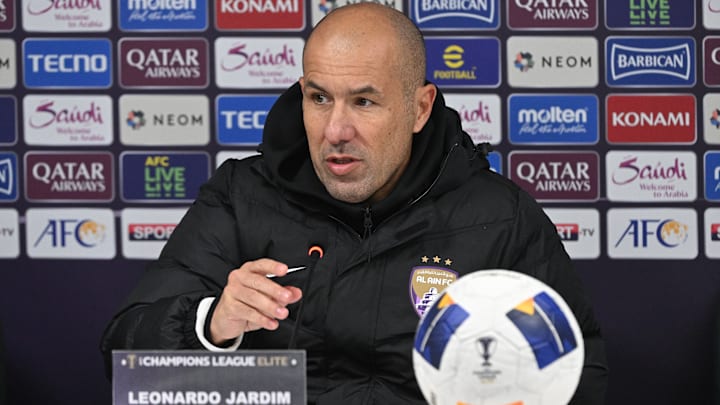Cruzeiro announced this afternoon Leonardo Jardim as the new head coach, with a contract in force until the end of 2026. Along with him, assistants Antonio Vieira, José Barros, and Diogo Dias have also arrived, which forms an entirely Portuguese coaching staff. But what does this hiring really mean for the Minas Gerais club, still fighting to recover its prestige in Brazilian soccer?
Follow Playing for 90 on X (Twitter).
International experience and the search for results at Cruzeiro Leonardo Jardim has had spells at clubs like Braga, Olympiacos, Sporting, and, of course, Monaco, where he reached his career peak. In the 2016/17 season, he led the French team to the Champions League semifinals, developing talents like Mbappé and managing stars like Falcao García.
However, Jardim's career has not been all about success. His most recent spell in charge at Al-Ain, from the United Arab Emirates, was anything but brilliant. In 15 official matches, he won only five times.
Cruzeiro's current situation
Cruzeiro is going through difficult times. After spending time in Série B and coming back into the top division with struggles, the club still searches for its identity. It does not have the structure or key players to bear the pressure of Série A in the Campeonato Brasileiro.
Leonardo Jardim arrives with the mission of creating a winning mentality-one that has been lacking over the last few seasons. A question now very much in the air is whether he will be given sufficient time to do so. In Brazilian soccer, patience is short, as one would expect where immediate results are in demand.
The Portuguese influence in Brazilian Soccer
With Leonardo Jardim's arrival, four Portuguese coaches in big clubs presently represent Brazil. The biggest reference is Abel Ferreira, from Palmeiras, who had gathered important titles and consolidated the European mentality that is so prized in Brazilian soccer. Pedro Caixinha also tries to find his place in Santos, and Pepa, at Sport Recife.
Is Abel's success reproducible, or an exception? The expectation for Leonardo Jardim is to go the same way, but history shows adaptation to South American soccer is not that simple.
